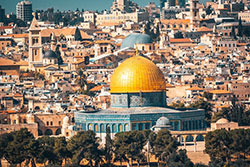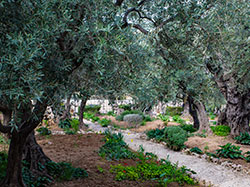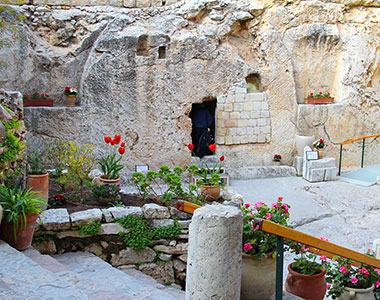Israel
Religion, Diverse Cultures
Jerusalem, Israel

Photo by Raimond Klavins / Unsplash | As a revered city for three major religions, Jerusalem beckons with its profound spirituality and rich historical tapestry. Retirees with an appetite for culture and spirituality will find Jerusalem's ancient landmarks awe-inspiring. Embark on a journey through history by visiting the Western Wall, where prayers and wishes have been offered for millennia.
|

Photo by Stacey Franco / Unsplash | For a contemplative experience, the serene Church of the Holy Sepulchre is a must-visit site, resonating with centuries of spiritual devotion. Jerusalem's Old City invites you to meander through narrow, cobbled streets and discover hidden gems in the bustling souks. Engaging in interfaith dialogues and absorbing the city's unique ambiance will leave you with lasting memories.
|
TRAVEL WARNING: ISRAEL IS AT WAR
It is not safe at the present time to travel to Israel due to the current war with Hamas in Gaza. Visit the U.S. Government Travel Advisory Web site for updates.
Best time to visit: March to May (Spring) is one of the most pleasant times to visit Jerusalem. The weather is mild, and the city is in bloom with beautiful flowers and greenery. It's a great time for sightseeing and exploring the historical sites. Temperatures in the Spring ( 55°F to 75°F (13°C to 24°C). Autumn (September to November) is another pleasant time to visit Jerusalem, with average temperaures ranging between 65°F to 80°F (18°C to 27°C).
Winter (December to February) temperatures average between 45°F to 60°F
(7°C to 15°C). Winter in Jerusalem is typically mild and can be quite rainy.
Summer (June to August) can be hot in Jerusalem, you can expect temperatures between 75°F to 90°F (24°C to 32°C). It's a dry heat, but it can still be quite intense. Make sure to stay hydrated and avoid strenuous activities during the hottest parts of the day.
|
Travel Tips:
- Use Right Hand for Eating: In Middle Eastern culture, the left hand is considered unclean, so always use your right hand for eating and handling food. Similarly, avoid pointing or gesturing with the left hand.
- Regional Culture: Embrace the warmth and hospitality of the local people, experience traditional music and dance, and savor the flavors of Middle Eastern cuisine.
- Visa Requirements: Check the visa requirements for your country of residence before traveling to Israel. Depending on your nationality, you may need to apply for a visa in advance or obtain an entry permit. Make sure to complete the necessary visa procedures ahead of time to avoid any last-minute complications. You can visit the official website of the Israeli Ministry of Foreign Affairs or consult with the nearest Israeli embassy or consulate for the most accurate and up-to-date information regarding visa requirements and application procedures.
- Book in Advance: For longer trips or popular routes, it's advisable to book transportation in advance to secure your seats and avoid last-minute inconveniences. Consider booking domestic flights or intercity buses, especially during peak travel seasons, to ensure availability.
- Currency: The official currency of Israel is the Israeli New Shekel (ILS). When traveling to Israel, it's advisable to have some Israeli New Shekels in cash for smaller expenses, such as local transportation, small vendors, or markets that may not accept credit cards.
You can exchange your currency to Israeli New Shekels at banks, exchange offices, or currency exchange counters at airports. It's recommended to compare exchange rates and fees at different places to get the best deal.
Credit cards are widely accepted in hotels, restaurants, and larger establishments in tourist areas. Visa and Mastercard are the most commonly accepted cards, followed by American Express. However, it's always a good idea to carry some cash as a backup, especially when traveling to more remote or rural areas where card acceptance may be limited.
ATMs (automatic teller machines) are readily available in cities and towns throughout Israel, and they offer a convenient way to withdraw Israeli New Shekels using your debit or credit card. Just be mindful of any potential ATM fees that may apply, and notify your bank or card provider of your travel plans to ensure seamless card usage during your trip.
It's worth noting that foreign currencies are generally not accepted for day-to-day transactions in Israel. It's advisable to exchange your money to Israeli New Shekels for the most convenient and widely accepted form of payment during your visit.
- Local Customs and Etiquette: Familiarize yourself with Israeli laws, customs, and cultural norms to show respect and avoid any unintentional offenses. Dress modestly when visiting religious sites, and adhere to any signage or instructions provided.
Transportation:
- Air Travel: Domestic flights are a popular and convenient mode of transportation for longer distances in Israel. Several airlines operate frequent flights between major cities and tourist destinations. Domestic flights are generally reliable, time-efficient, and offer a comfortable travel experience.
- Trains: Israel has a modern and efficient railway network, and trains can be a convenient way to explore the country. There are various types of trains, including intercity trains and light rail systems in cities like Jerusalem and Tel Aviv. Trains are known for their punctuality and comfort.
- Buses: Buses are a common and cost-effective mode of transportation for both short and long distances in Israel. There are several bus companies operating intercity routes, offering comfortable seating and air conditioning. The bus network is extensive, covering most areas of the country.
- Taxis: Taxis are widely available in cities and towns throughout Israel. They are typically metered, and it's advisable to ensure the meter is used or negotiate the fare before starting the journey. Taxis are convenient for shorter trips within urban areas or when public transportation is less accessible.
- Car Rentals: Renting a car in Israel can be a safe and flexible option for travelers who want to explore the country at their own pace. Just ensure that you're aware of driving laws and regulations, have the necessary insurance coverage, and plan your routes carefully, especially in cities with potential traffic congestion. In urban areas like Tel Aviv and Jerusalem, traffic congestion can be a concern during rush hours. Plan your trips accordingly to avoid heavy traffic. Road signs are in Hebrew, Arabic, and English, making it relatively easy for English-speaking travelers to navigate. GPS and navigation apps are widely available and can be very helpful.
- Driving Laws: Israel has strict traffic regulations and enforces them rigorously. It's essential to obey speed limits, use seat belts, and avoid using a mobile phone while driving. Alcohol consumption is strictly monitored, and driving under the influence is illegal.
- Parking: In cities, parking can be a challenge, and it's important to pay attention to parking regulations and fees. Paid parking is common, and there are designated parking areas.
Safety Tips:
- Research and Stay Informed: Before your trip, thoroughly research your destination in Israel and check the latest travel advisories from your government or relevant authorities. Stay updated on any potential risks or safety concerns specific to Israel.
- Travel Advisories Stay updated on current events, local regulations, and any travel advisories when traveling abroad. Visit the US Government State Department Travel Advisories web site to check on the status of your destination.
- Stay in Designated Tourist Areas: Choose accommodations in safe and well-known tourist areas within Israel. Be aware of your surroundings and avoid isolated or remote regions that may have security risks. Avoid walking alone at night, dress modestly, and minimize the amount of cash you carry.
- Register with Your Embassy: Consider registering your travel plans with your country's embassy or consulate in Israel. This allows them to contact you in case of emergencies or provide important updates. Follow any security advisories or travel warnings issued by your home country's embassy or consulate in Israel.
- Enroll in the STEP Program: Travelers are also urged to enroll in the U.S. State Department's Smart Traveler Enrollment Program (STEP) to receive security messages and to make it easier to locate them in an emergency. The Department uses these security messages to convey information about terrorist threats, security incidents, planned demonstrations, natural disasters, etc. In an emergency, please contact the nearest U.S. Embassy or consulate or call the following numbers: 1 (888) 407-4747 (toll-free in the United States and Canada) or 1 (202) 501-4444 from other countries.
- Respect Local Customs and Culture: Familiarize yourself with local customs and cultural norms in Israel. Dress modestly, particularly in conservative areas, and be mindful of local traditions, especially during religious events. Avoid discussing sensitive political or religious topics. Non-Muslims may not be allowed to enter some mosques or certain areas within them, so always ask for permission and adhere to any rules or guidelines when visiting religious sites.
- Photography Restrictions: Always ask for permission before taking photos of individuals, especially women and religious figures. In some places, photography might be restricted, particularly near military or government buildings.
- Use Right Hand for Eating: In Middle Eastern culture, the left hand is considered unclean, so always use your right hand for eating and handling food. Similarly, avoid pointing or gesturing with the left hand.
- Avoid Alcohol Consumption in Public: Israel has varying regulations regarding alcohol consumption. While alcohol is available in licensed establishments, be aware of local laws and restrictions, especially in more conservative areas.
- Avoid Public Demonstrations: Stay away from political gatherings, protests, or demonstrations, as they can sometimes become unpredictable and potentially unsafe.
- Be Cautious with Personal Belongings: Keep your valuables secure and be vigilant in crowded places. Use a money belt or a secure bag to carry essential documents and money.
- Use Reliable Transportation: Opt for reputable transportation services and licensed drivers when traveling in Israel. Avoid unmarked taxis or unregulated transport options.
- Stay Hydrated and Use Sun Protection: Israel can have hot weather, so ensure you stay hydrated and use sunscreen, hats, and sunglasses to protect yourself from the sun.
- Drink Bottled Water: Stick to bottled water for drinking and brushing your teeth to avoid potential waterborne illnesses.
- Be Mindful of Food Safety: Enjoy local cuisine, but choose reputable eateries and avoid street food if you have concerns about its preparation and handling.
- Carry Important Contact Information: Have local emergency numbers and contacts readily available. Know how to reach your embassy or consulate in case of emergencies.
- Travel Insurance: Obtain comprehensive travel insurance that covers medical emergencies, trip cancellations, and other unforeseen circumstances during your stay in Israel.
Remember, these tips are general guidelines, and each country in the Middle East may have its own unique safety considerations. Always exercise caution, use your best judgment, and adapt your travel plans accordingly to ensure a safe and enjoyable trip.
| |
 Photo by Haley Black
 Reijo Telaranta / Pixabay
|
 Photo by Haley Black
Photo by Haley Black
 Reijo Telaranta / Pixabay
Reijo Telaranta / Pixabay